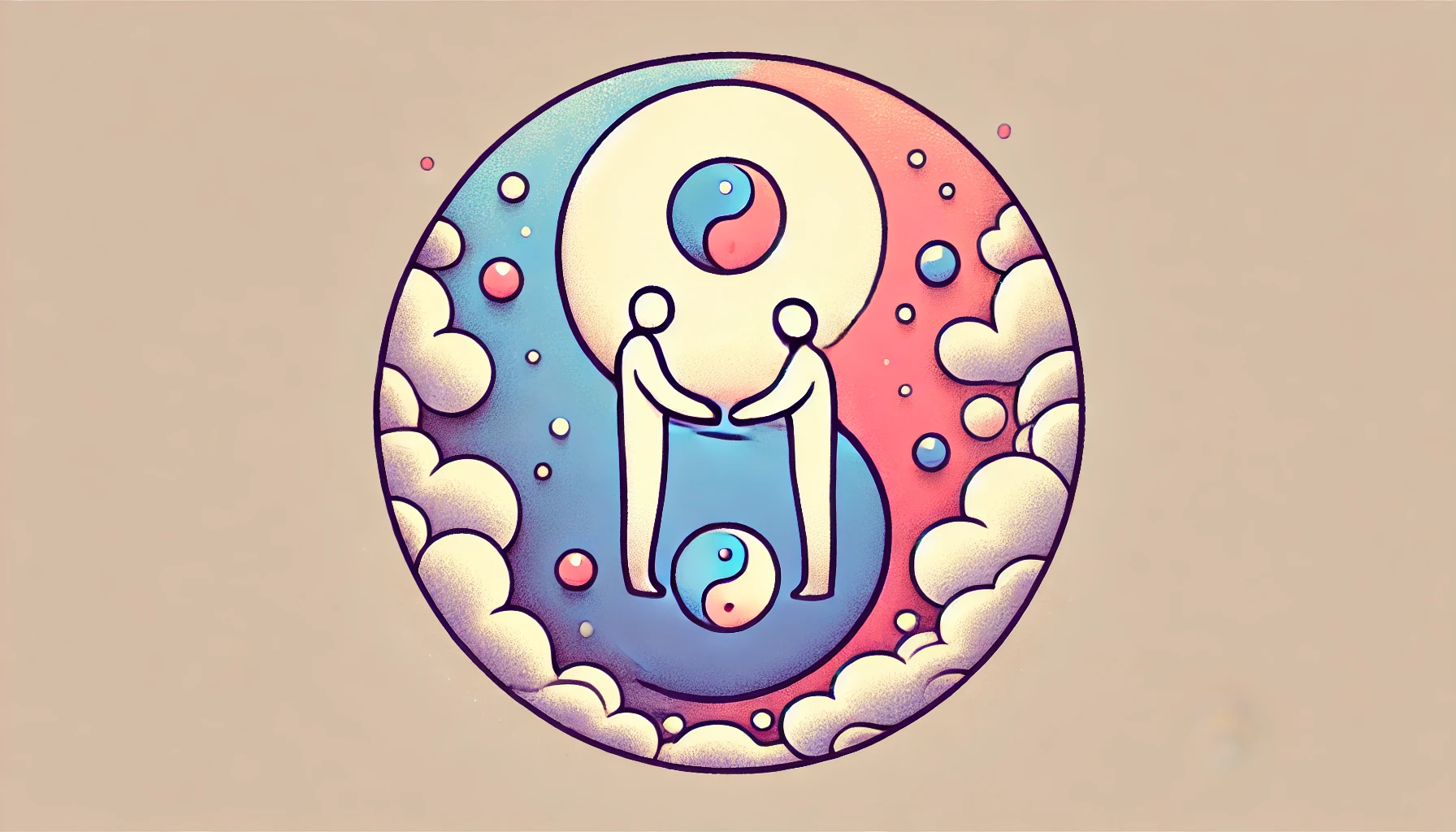Achieving inner peace and spiritual fulfillment is a profound and rewarding journey. Param Gurudev Shree Namramuni MS, a revered Jain spiritual leader, offers timeless wisdom on self-reflection, forgiveness, and inner purity. Through his profound teachings, Param Gurudev guides us on a transformative journey towards spiritual growth, emphasizing the importance of self-examination, sincere forgiveness, and the cultivation of virtue. In this blog, we explore the essence of Param Gurudev’s insights on Alochana (self-critique) and forgiveness, providing practical steps to enrich your spiritual practice and foster a compassionate, harmonious existence.
The Essence of Self-Reflection and Forgiveness

Param Gurudev always elucidates the profound concepts of self-reflection and forgiveness, which are essential pillars in the path to inner purity. He emphasises that the journey towards spiritual growth begins with an honest examination of oneself, acknowledging our flaws, and seeking forgiveness. Self-reflection and forgiveness are not just religious rituals; they are transformative practices that cleanse the soul and foster spiritual growth.
Michhami Dukkadam: The Ritual of Forgiveness

The essence of Jain philosophy, as explained by Param Gurudev, revolves around the practice of forgiveness, or ‘Michhami Dukkadam’. This ritual is not merely a formality but a deep, introspective process where one seeks pardon for any harm caused, consciously or unconsciously, to others throughout the year. This act of seeking forgiveness purifies the soul and fosters a sense of humility and empathy.
The Dual Nature of Forgiveness

Forgiveness, as Param Gurudev explains, is twofold. Firstly, there is the forgiveness sought from others, which requires a genuine acknowledgment of one’s mistakes. This practice cultivates a spirit of compassion and understanding, as we realise the impact of our actions on others. Secondly, there is the aspect of self-forgiveness, which is equally crucial. It involves letting go of the guilt and negativity that bind us, thereby liberating our spirit and allowing us to move forward with a clean slate.
The Pratikraman Ritual
Param Gurudev’s teachings highlight the significance of the ‘Pratikraman’ ritual, an integral part of Jainism, which is performed daily, fortnightly, and annually. This ritual involves reflecting on one’s actions, thoughts, and words, identifying where one has strayed from the path of righteousness, and seeking forgiveness. This continuous cycle of reflection and purification is vital for maintaining spiritual health and growth.
Sincerity in Seeking Forgiveness

A key takeaway from Param Gurudev’s discourse is the importance of sincerity in the process of seeking forgiveness. It’s not enough to merely utter the words; the intent and effort to change must be genuine. This sincerity transforms the ritual from a mere tradition into a powerful tool for personal and spiritual development.
Anuvrat: Small Vows for a Virtuous Life
Furthermore, Param Gurudev delves into the concept of ‘Anuvrat’, or small vows, which are personal commitments to live a life of virtue and simplicity. These vows act as guidelines, helping individuals navigate through life with integrity and purpose. By adhering to these vows, one can gradually eliminate negative tendencies and cultivate a purer, more harmonious existence.
Alochana: The Practice of Self-Critique
In addition to forgiveness, Param Gurudev stresses the importance of ‘Alochana’, or self-critique. This practice involves critically evaluating one’s own behaviour and mindset, identifying areas of improvement, and striving for continuous self-betterment. Alochana is not about self-criticism but rather a constructive process of growth and self-awareness.
The Interplay of Forgiveness and Self-Critique

The relationship between forgiveness and self-critique is deeply interwoven. Self-critique allows individuals to recognize their shortcomings, while forgiveness provides a means to address and rectify those shortcomings. This dynamic interplay ensures a balanced approach to personal and spiritual development, fostering both accountability and compassion.
The Impact on Personal Relationships
Param Gurudev’s insights also touch upon the broader impact of these practices on one’s relationships and community. By fostering a culture of forgiveness and self-improvement, we contribute to a more compassionate and understanding society. This collective effort towards spiritual purity not only enhances individual well-being but also strengthens communal bonds.
The Path to Spiritual Purity

The path to spiritual purity, as guided by Param Gurudev, involves regular introspection and the sincere practice of forgiveness. By consistently engaging in self-reflection and making genuine efforts to correct our mistakes, we can cleanse our souls of negativity and foster a state of inner peace and purity.
Embracing the Teachings of Param Gurudev
Param Gurudev’s teachings offer a comprehensive guide to cultivating inner purity and spiritual growth. By embracing these principles and incorporating them into our daily lives, we can achieve a state of harmony and spiritual fulfilment. The practices of Pratikraman and Alochana, along with adherence to Anuvrat, pave the way for a spiritually enriched existence, fostering both personal and communal harmony.
Practical Steps for Daily Practice
- Daily Reflection: Set aside time each day for self-reflection. Assess your actions, thoughts, and words, and identify areas where you may have caused harm or deviated from your values.
- Seek Forgiveness: Regularly seek forgiveness from those you may have wronged. Approach this practice with sincerity and humility.
- Self-Forgiveness: Forgive yourself for past mistakes. Let go of guilt and negativity, and focus on personal growth and improvement.
- Commit to Anuvrat: Make small, personal vows to live a life of virtue. These commitments will help guide your actions and decisions.
- Engage in Alochana: Regularly critique your own behavior. Identify areas for improvement and strive to make positive changes.
- Perform Pratikraman: Engage in the Pratikraman ritual daily, fortnightly, and annually. This practice will help you maintain spiritual health and purity.
The Broader Impact of Forgiveness and Self-Reflection
By integrating these practices into your life, you not only enhance your own spiritual journey but also contribute to a more compassionate and understanding community. The ripple effect of your actions can inspire others to embark on their own path of self-reflection and forgiveness, fostering a collective movement towards inner purity and harmony.
Conclusion
Param Gurudev’s teachings on self-reflection, forgiveness, and inner purity offer a timeless guide to spiritual growth. By embracing these principles, we can cultivate a life of virtue, empathy, and self-awareness. The practices of Pratikraman and Alochana, along with adherence to Anuvrat, pave the way for a spiritually enriched existence, fostering both personal and communal harmony.





